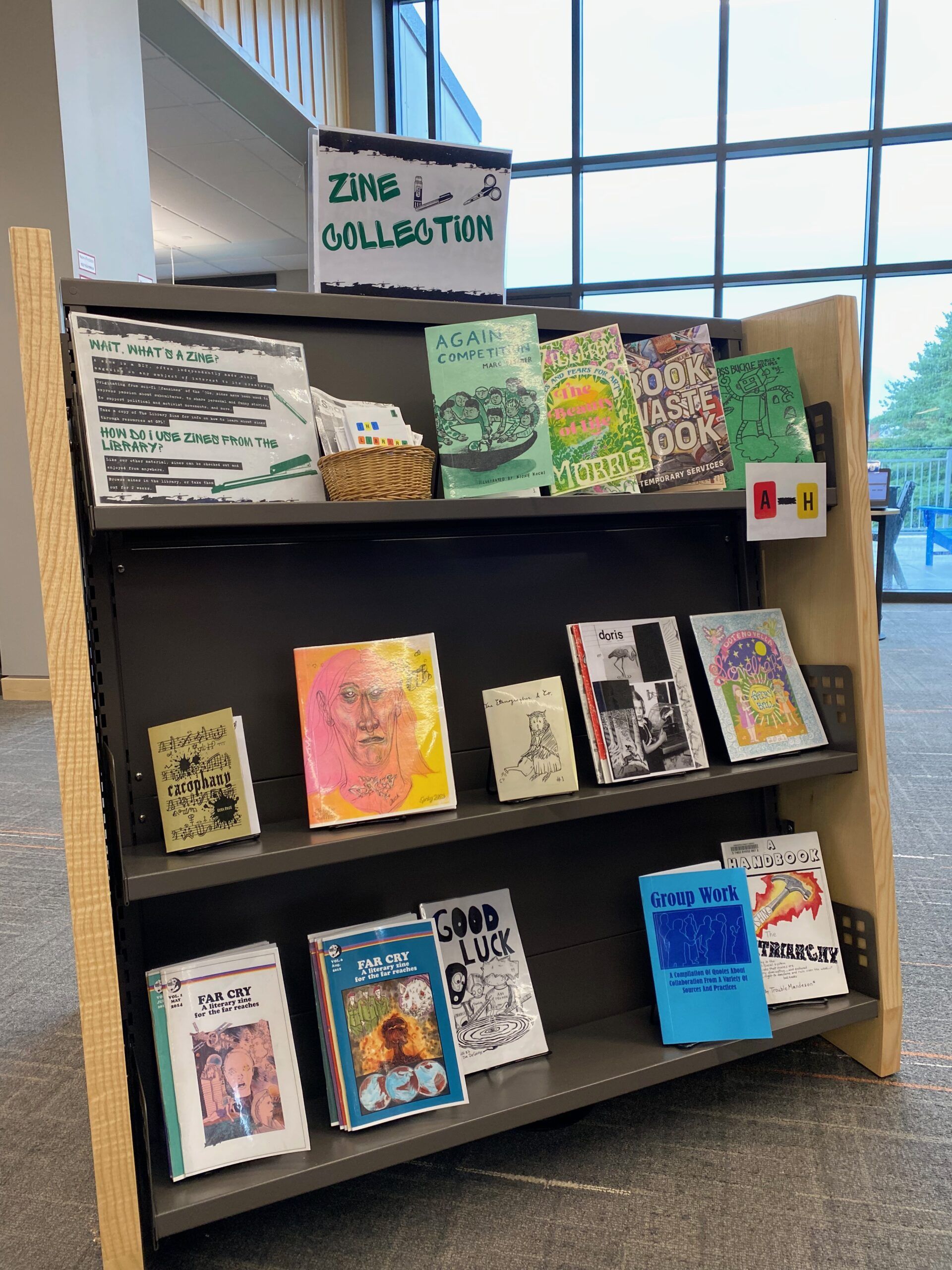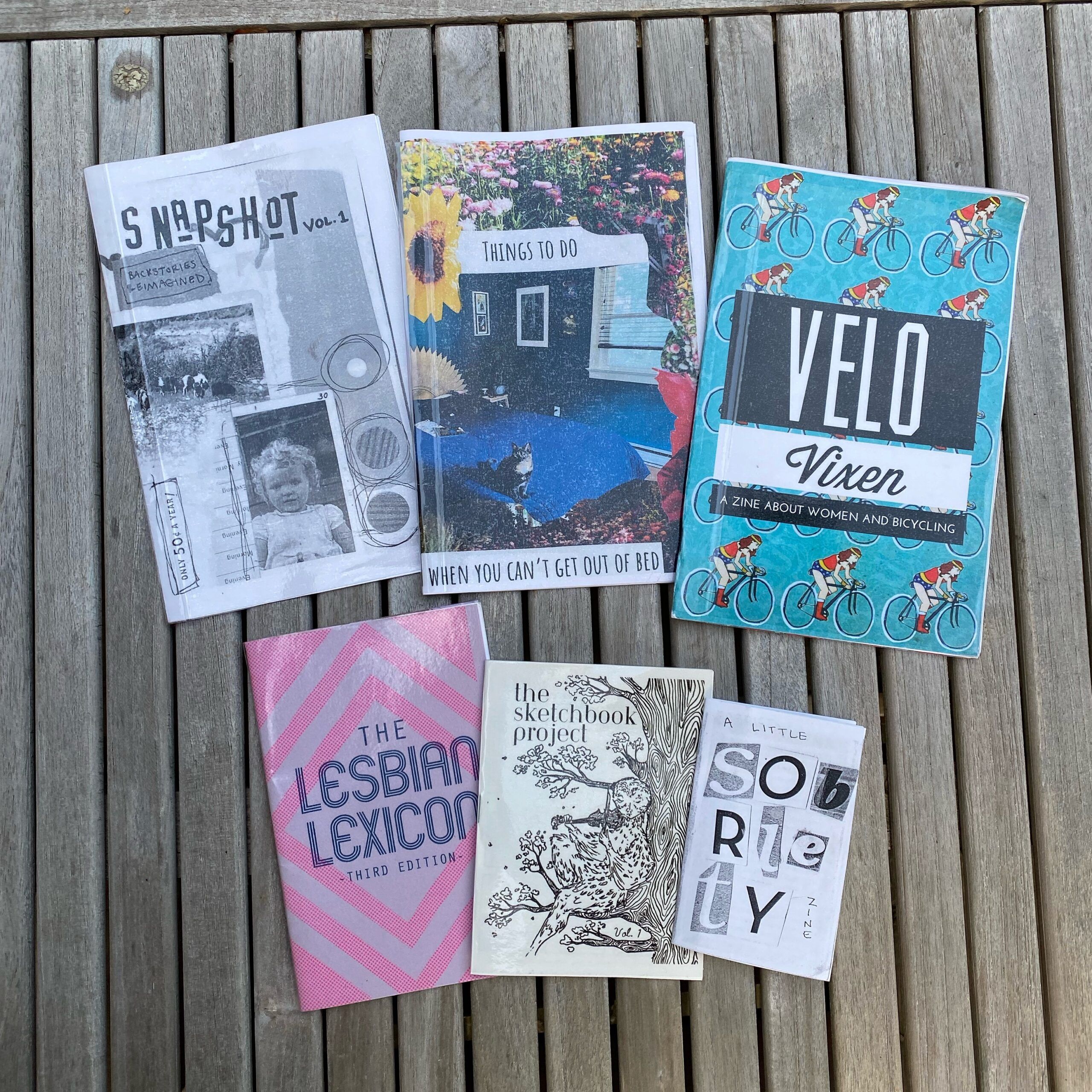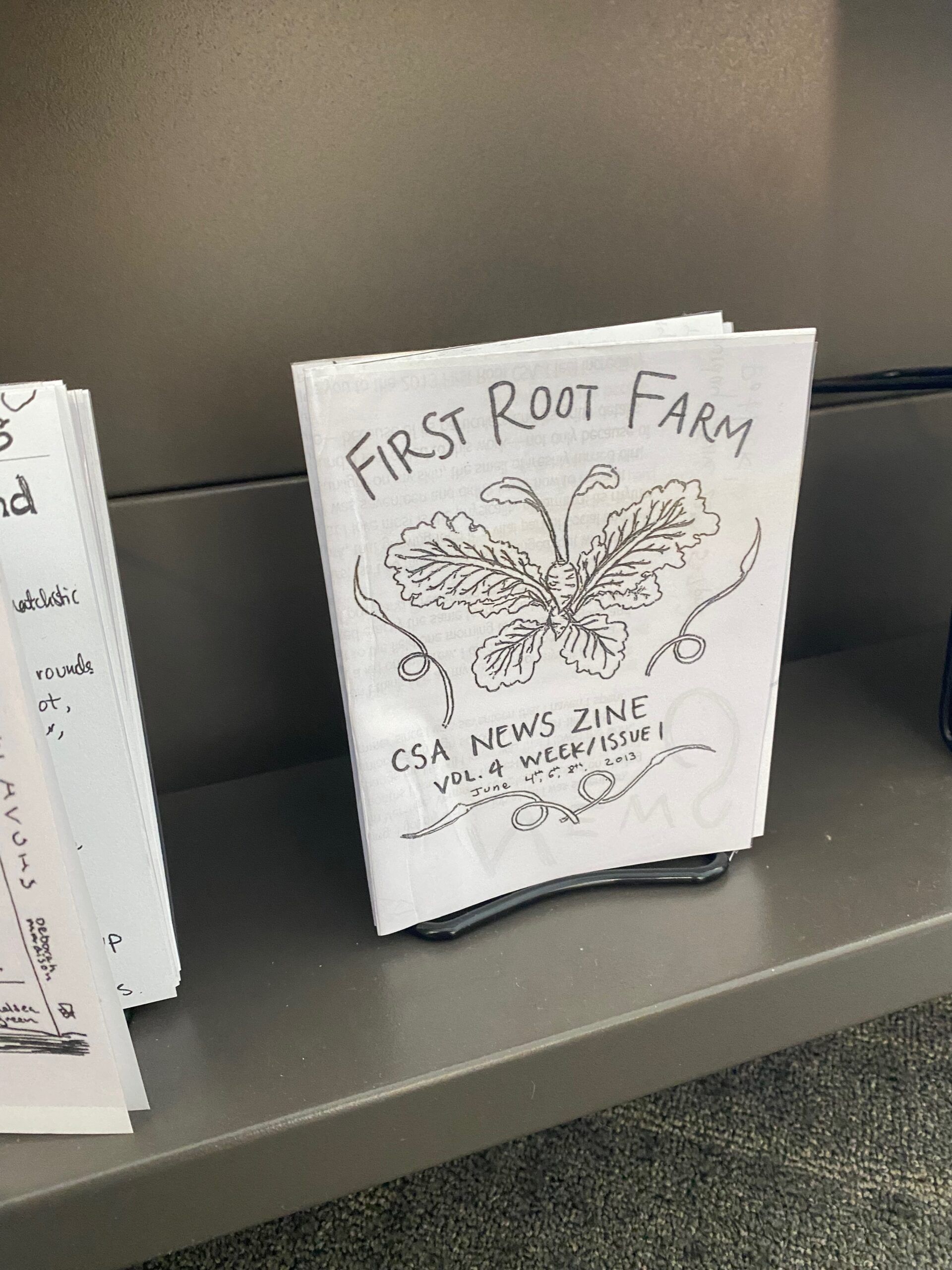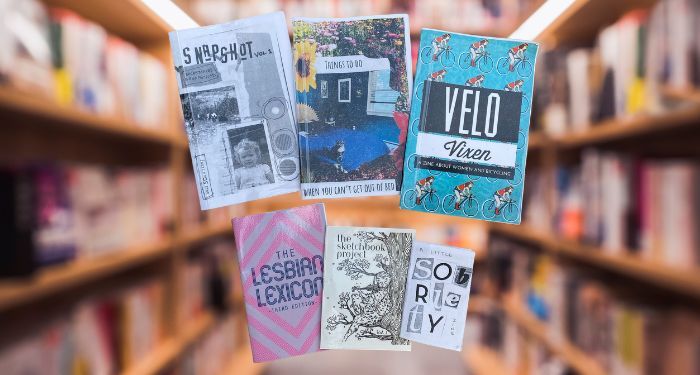My town has a new library, and it is one of the best things that has happened to me this year. I’m not exaggerating. The old library was tiny and dark, and it didn’t have the resources it needed to serve the community. The new library, which was under construction for several years, finally opened in July, and it’s everything. I go there to work a few times a week, and I see more people every day than I saw at the old library in a week. It’s big and airy and has about a million things I love, from a fabulous teen room to laptops you can check out to a free puzzle swap table. There’s even a balcony.
But my favorite thing about the new library is the circulating zine collection. Currently, the library has about 50 zines in circulation, although the collection keeps growing. A lot of them are written by people in the community (including me!), although there are some from further afield, too. I’ve gotten in the habit of checking out a few zines every time I’m in the library.

I’ve always loved zines, which have a long history in radical, queer, and activist organizing and community. I’ve made a few in my day, and I’ve read others, too — ones that people have given to me or that I’ve come across at events. But as I’ve become more and more familiar with my library’s zine collection, I’ve realized that, despite loving zines, they aren’t always easy to get. I’m not part of zine culture, and I don’t often find myself in bookstores or other venues where zines are commonplace.
My library’s zine collection has opened up this world to me. It may be small, but it’s wonderfully varied and eclectic. There are tiny, single-issue zines that are mostly pictures. There are thick, many-paged zines about a dizzying array of topics, from 19th-century poetry and protest first aid to herbalism and queer terminology. There are intimate personal zines about trauma and silly collage zines, zines full of jokes, and fantasy zines that are surreal and strange.
In the past few months, I’ve read a zine from a Kansas City women’s cycling collective full of essays and photos about bikes. I read a very sweet and simple zine by a local zine-maker full of photos of flowers accompanied by suggestions for things to do when you can’t get out of bed. I read a radical gardening zine with amazing art, recipes for tinctures, and a great essay about Derek Jarman.

I even submitted a few zines to the collection! Back when I ran a farm, we made a weekly zine for our CSA members. Every week, along with their produce, they’d get this little zine full of recipes, jokes, poems, activities, and farm news. I have hundreds and hundreds of these zines from the seven years I ran the farm, and now a bunch of them are freely available for folks to check out of the library! I also donated a copy of the zine I made for the Queer Your Year Reading Challenge I’m hosting this year, and it gives me a little thrill every time I walk by the shelf and see it there.

I am clearly the target audience for my library’s new zine collection. I adore it and aim to read every zine, eventually. But I also think a zine collection is a worthwhile and admirable endeavor for any library. There’s something really special about seeing these homemade zines in the library. Most of them are not professional. Some of them are just stapled or taped together. They are written by neighbors and community members. Some of them are truly niche. I checked out a zine the other day that was just a bunch of pen and ink portraits of obscure 20th-century writers accompanied by quotes. But there it was on the shelf, a thing someone made because they were into it, available for anyone to read.
The zine collection feels like the most democratic, open part of the library. As far as I can tell, the librarians curating it aren’t gatekeeping. Nothing seems to be too weird or obscure. You don’t have to be a published author or part of an organization or even a seasoned zine-maker to submit a zine. You just have to be a person with something to say and a pen.
Libraries provide so many vital services — not only books, of course but space, computers, community events — I’m sure, since you’re here, that I don’t have to explain to you how much libraries do. A zine collection is also a resource and a service. Mostly, though, it’s a delight. It’s so much fun. It’s joyful. It’s surprising. It’s a way for people to feel seen and connected. I hope more libraries will continue cultivating these kinds of creative circulating collections.
